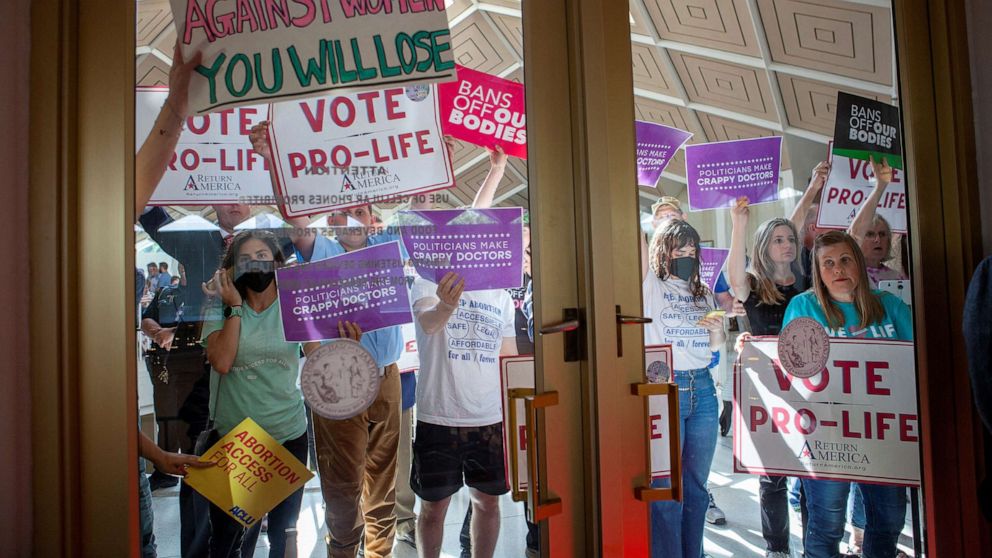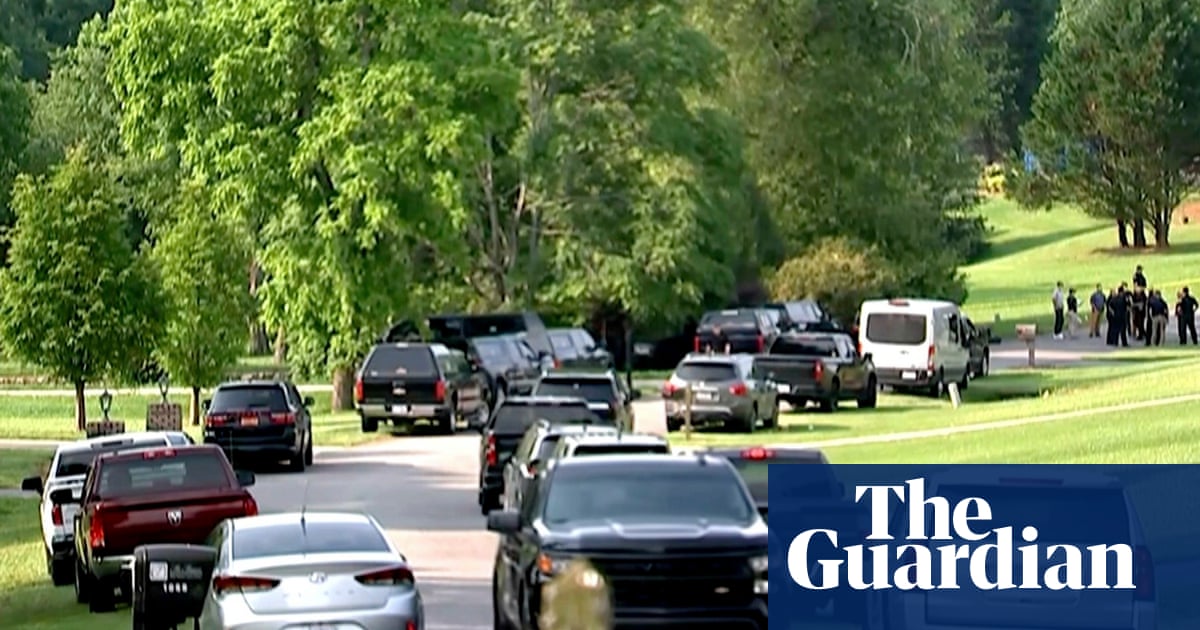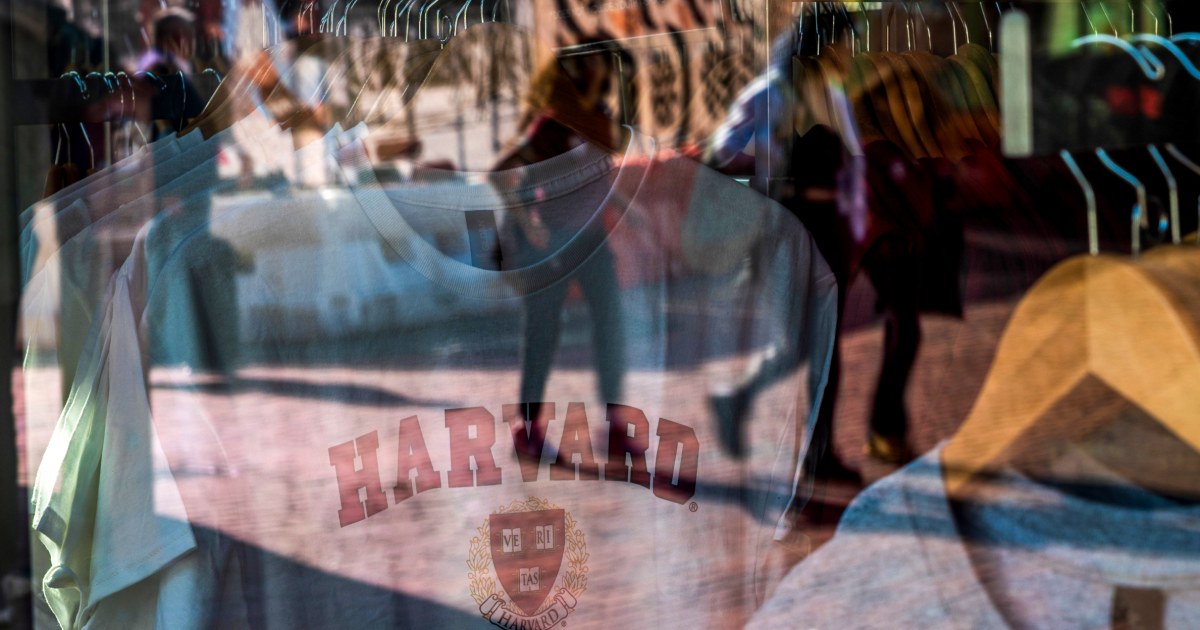North Carolina
North Carolina 12-week abortion ban goes into effect, down from 20-week limit

North Carolina now prohibits abortions after 12 weeks of pregnancy, bringing its limit down from 20 weeks.
This comes despite a lawsuit filed by Planned Parenthood and Dr. Beverly Gray, an abortion provider, challenging the legality of the ban, which requested a temporary restraining order on the ban before it went into effect Saturday.
The judge issued a ruling allowing most of the ban to go into effect, with the exception of one rule that would have required physicians prescribing medication abortions to document the pregnancy in their medical chart, according to the order. The temporary restraining order will remain in effect until July 14, as litigation continues.
Another provision, which requires sexual assault survivors to obtain an abortion in a hospital after 12-weeks of pregnancy will not go into effect until Oct. 1, according to Planned Parenthood.
In response to the suit, the legislature passed a bill clarifying some provisions that are at the center of the lawsuit. This includes allowing abortion pills to be prescribed beyond the 10-week limit that the ban had originally established and that providers cannot be prosecuted for providing legal abortions.
“Our legal challenge forced General Assembly leadership to clean up their mess of a bill, but we never should have had to sue to get clarity on how to comply with this law. Planned Parenthood South Atlantic remains committed to providing abortion care to as many people as possible within the unjust and inhumane confines of this abortion ban, and we encourage anyone in need of abortion care to contact us as soon as possible for help navigating this new reality,” Jenny Black, the president & CEO of Planned Parenthood South Atlantic, said in a statement Friday.
The North Carolina Legislature’s Republican supermajority overrode the Democratic governor’s veto of an abortion ban, passing the 12-week ban in May. The Republicans garnered a supermajority after a lawmaker switched parties less than six months after being elected into office as a Democrat.
The new ban will require abortion providers to give a state-mandated script about the risk of abortions 72 hours before the appointment.
A demonstrator holds a sign and a baby outside a House Floor gallery window at the North Carolina State Legislature, May 3, 2023, after Republican state lawmakers announced their plan to limit abortion rights across the state.
Tribune News Service via Getty Images, FILE
The ban permits exceptions for cases of rape and incest up to 20 weeks of pregnancy and fatal or life-limiting fetal anomalies up to 24 weeks of pregnancy. It also permits abortions for ectopic pregnancies and to save the life of the mother.
Any abortions performed in accordance with the exceptions permitted by the ban are required to be reported to the state’s Department of Health. The report must include a record of evidence explaining why the abortion care is permitted under the exceptions.
North Carolina is a key point of abortion access for women in the South who live in states where nearly all abortions have ceased since Roe v. Wade was overturned a year ago, ending federal protections for abortion rights.

North Carolina Governor Roy Cooper speaks to abortion rights supporters shortly before vetoing the SB20 legislation limiting most abortions to the first trimester of pregnancy, May 13, 2023, in Raleigh, N.C.
Jonathan Drake/Reuters
North Carolina saw the third-largest increase — behind Florida and Illinois — in the total number of abortions provided by a clinician during the nine-month period after Roe was overturned, according to data collected by WeCount.
Access to abortion in Florida is also at risk as the state’s Supreme Court examines the legality of a 15-week ban. If the court upholds the ban, a separate law that implements a six-week abortion ban will go into effect.
In the last year, 15 states have ceased nearly all abortion services.

North Carolina
One dead and 11 injured after 80 shots fired at North Carolina house party

At least 80 shots were fired in a North Carolina neighborhood, killing one person and injuring 11 others, authorities said Sunday.
The shooting early Sunday took place in Hickory, the Catawba county sheriff’s office said. No arrests have been made, but authorities said there was more than one shooter.
The shooting took place at about 12:45am during a party in Hickory, the Catawba county sheriff’s office said.
One victim was in critical condition and 10 others were hospitalized in serious condition, the sheriff’s office said.
The North Carolina state bureau of investigation and the Hickory police department are investigating the shooting. The FBI is also assisting in the case. No arrests have been made and the total number of shots fired is not yet known.
The sheriff’s department has not released the victims’ names or ages.
Investigators said there were as many as 100 people attending a house party at a home on the street when one or more people discharged firearms, WSOC-TV reported.
Eyewitnesses told local reporters that many people attending the party were from nearby high schools and people began scattering, ducking for cover and running toward safety when shots erupted.
Major Aaron Turk with the sheriff’s office said at a news conference that the street was usually quiet.
North Carolina
NC leaders announce changes to shorten DMV lines

North Carolina leaders announced changes at the NC Division of Motor Vehicles during a press conference on Friday.
Gov. Josh Stein, Secretary of Transportation Joey Hopkins, and NCDMV Commissioner Paul Tine spoke at the Raleigh East Drivers License Office to address long waits and difficulty booking appointments at the DMV, WRAL News reported.
Hopkins said the newly elected Tine brings a “wealth of experience” to help with the work the state plans to do.
READ: NC leaders want changes to cut long DMV lines
Tine said he planned to improve career benefits for examiners, update the DMV website and social media, reorganize the internal department, and reopen 20 locations to walk-ins on Saturdays.
“We have new core principles to promote problem-solving: service, efficiency, agility and accountability,” Tine said.
Twenty locations will be open to walk-ins from 8 a.m. to noon on Saturdays starting on May 31, WRAL News reported.
The following locations will be open to walk-ins on Saturdays:
-
Asheville, 1624 Patton Ave.
-
Charlotte North, 9711 David Taylor Dr.
-
Charlotte South, 201 W. Arrowood Rd., Suite H
-
Clayton, 1665 Old U.S. Hwy. 70 W. (Shotwell Station)
-
Durham, 101 S. Miami Blvd.
-
Elizabeth City, 1164 U.S. Hwy. 17 S.
-
Fayetteville, 831 Elm St. (Eutaw Village)
-
Graham, 111 E. Crescent Square
-
Greensboro, 2391 Coliseum Blvd.
-
Greenville, 4651 N. Creek Dr.
-
Huntersville, 12101 Mount Holly-Huntersville Rd.
-
Jacksonville, 299 Wilmington Hwy.
-
Kernersville, 810-A N. Main St.
-
Monroe, 3122 U.S. Hwy. 74 W.
-
Raleigh East, 4121 New Bern Ave. (Wilder’s Grove)
-
Raleigh West, 3231 Avent Ferry Rd.
-
Salisbury, US 29 S, 5780 South Main St.
-
Wilmington, 2390 Carolina Beach Rd., Suite 104 (South Square Plaza)
-
Winston-Salem, 2001 Silas Creek Pkwy
The DMV is also now offering several online services. Residents can now renew driver’s licenses and ID cards, order duplicate licenses and ID cards, change their address, and apply for voter registration online.
WATCH: NC leaders want changes to cut long DMV lines
North Carolina
NC Made: Schiemann Guitars handcrafts custom pieces of history

FUQUAY-VARINA, N.C. (WTVD) — Tucked away in his small two-car garage turned workshop, you can hear the hum of the saw, dust wafting into the air, and then the twang of a guitar string.
About four years ago, Matt Schiemann realized his talent wasn’t exactly in playing guitars but making them.
“I still enjoy playing guitar, but it was clear that wasn’t going to be the thing I was really going to be doing. So I started tinkering with things, and one thing led to another, where I just started building my own,” said Schiemann.
He made about 100 completely customized guitars and shipped them all over the world.
“This one I’m working on for a father as a commemoration for his daughter who loved butterflies,” Schiemann said.
Each design is unique to its owner, and some even pay homage to North Carolina’s history.
ALSO SEE NC Made: Raleigh’s Videri Chocolate Factory serves sweet success with bean-to-bar treats
“This wood came from a combination of two different barns here in Fuquay. One came from a little area called Kipling, and the other one came from just up the road in Fuquay,” he said.
The knots and original nail holes in the wood were gathered from tobacco barns within a few miles of Schiemann’s home.
“Our area in Fuquay is really starting to develop a lot, so all the farms that are there that had barns on them have been bought by developers. So they go in and tear everything down. I’m trying to save a little bit of the history that we have around here,” Matt said.
As the saying goes, one man’s trash is another man’s treasure.
“It’s pretty amazing to see this thing you’ve taken from start to finish. It’s almost like this barn that has a retirement as a musician now. It’s giving it a second life,” Schiemann said.
For more information about Matt and Schiemann guitars, visit here.
Copyright © 2025 WTVD-TV. All Rights Reserved.
-

 World1 week ago
World1 week agoNeo-Nazi cult leader extradited to US for plot to kill Jewish children
-

 Movie Reviews1 week ago
Movie Reviews1 week agoMovie review: 'Dogma' re-release highlights thoughtful script – UPI.com
-

 Technology1 week ago
Technology1 week agoDiscord might use AI to help you catch up on conversations
-

 Business1 week ago
Business1 week agoPlastic Spoons, Umbrellas, Violins: A Guide to What Americans Buy From China
-

 World1 week ago
World1 week agoCade Cunningham Gains $45 Million From All-NBA Honors
-

 Movie Reviews6 days ago
Movie Reviews6 days agoMOVIE REVIEW – Mission: Impossible 8 has Tom Cruise facing his final reckoning
-

 Politics1 week ago
Politics1 week agoDefense secretary announces pay raises for Army paratroopers: 'We have you and your families in mind'
-

 Education1 week ago
Education1 week agoVideo: Judge Blocks Trump Move to Ban Foreign Students at Harvard















